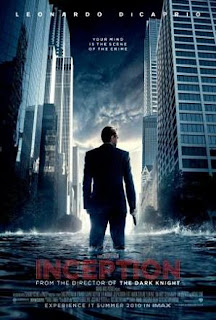The concept of having an ‘Empty Mind’ is attributed to Zen practices. Recall the Zen parable where the older and wise monk requested the young and impulsive monk: ‘Before you can fill the cup, you must first empty your cup!’
Working life poses challenges and problems of many dimensions. It is also a wellspring of stress. Dysfunctional relationships are part of the revelations of stressful work activities, unusual demands and a need to perform well constantly. Thus, we may be of two minds at times - and that may present difficulties in getting through to us.
There is a limit to how much we can contain in our present mind. Our mindset, at one moment, will be relevant for certain needs. Another mindset may accommodate and entertain other knowledge and seeds of influence. In the new film Inception, mind-spies attempt to infiltrate the subconscious mind of a target, and extract information from a vault. The film also alludes to planting seeds of thought into that deeply protected vault where secrets should remain buried in the dark recess of one's mind.
Too often, our mind suffers an endless clutter of attractions and distractions. Occasionally, we experience confusion and we hope that clarity replaces it soon. So, when our leader tells us to sort things out it refers to our internal processes of categorizing things and prioritizing them. We look for ways to agree as we do easily disagree. Agreeing to agree may be easier than disagreeing to disagree – whatever that means.
When facilitating a discussion or strategic session, we need to be mindful of the dynamics of the audience, their preferences and prejudices, beliefs and values. These ‘filters’ can be exceedingly hard to negotiate around if we have a filled cup, that is, we are blind-sided by our pre-judgements, paradigms and other mental models. With an empty mind, we can navigate across the common objectives and head for intended outcomes, sooner than later. High-level facilitation calls upon your sense of confidence, curiosity and discipline. Sometimes, you coach your team; other times, you coach them along. Your position and pre-position matters if you intend to achieve the ideals of faster, stronger and higher.
How do you free up your mind? When do you experience a state of ‘no burden’? How do you stay focused on the outcomes? How do you separate process from content?
Poster credit: Wikipedia, Warner Brothers and Legendary Pictures


No comments:
Post a Comment